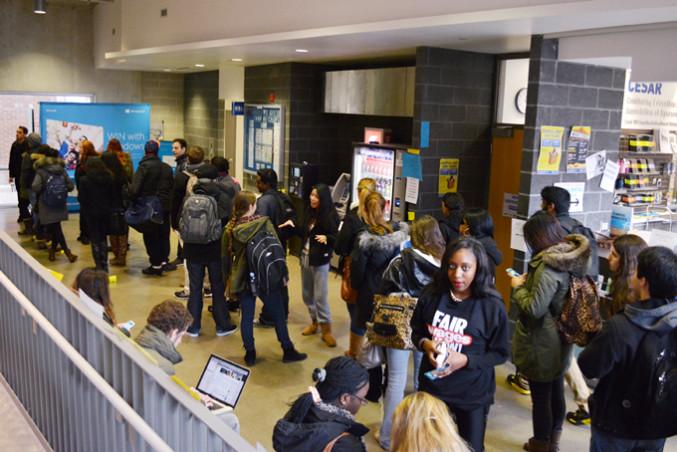By Keith Capstick
One hundred Ryerson students are currently without their health and dental opt-out cheques because of a privacy dispute between the Ryerson Students’ Union (RSU) and the Continuing Education Students’ Association of Ryerson (CESAR).
Every year undergraduate students mistakenly opt-out under CESAR and their personal information has to be sent from CESAR to the RSU to then be provided to the university.
RSU president Andrea Bartlett says that she’s been informed by CESAR president Denise Hammond that this year, those students’ opt-out information will not be sent to the RSU for processing until the two unions reach an agreement on a privacy contract to ensure the information is protected.
Bartlett also claims that this hasn’t happened in previous years and that in the past the information has been promptly sent over without delay.
“This is a common issue that isn’t isolated to this year,” said Bartlett. “This year CESAR is claiming that because we changed our broker that there needs to be a data share agreement between RSU and CESAR … we have a data share agreement with the university to share this information and the registrar’s office confirmed that it was a low risk exchange of information.”
Hammond defends the delay, citing the fact that the RSU switched insurance brokers this year. With the two unions having different brokers Hammond was concerned about violating the students’ privacy.
“The RSU was using the same insurance broker. That information could seamlessly be checked and balanced but that’s no longer the case,” said Hammond.
A defense which Bartlett emphatically disagrees with.
“At the end of the day the information is flowing through us to the university,” said Bartlett. “To be frank that’s bullshit, there’s literally no reason why us switching providers has any change in the contract we have with the university.”
This complication comes on the heels of weeks of communication failure between the RSU and CESAR after the RSU attempted to terminate a staffing agreement the two unions signed in April, before Bartlett took office. Neither president had been in contact with the other about reconstructing their relationship before the news of this opt-out complication pushed them further at odds.
The contract Hammond and CESAR are asking the RSU executive to sign would be very similar to the one Bartlett says they have with the school. The purpose of the contract would be to restrict the specificity of information allowed to be given to the school to just what is necessary for the opt out process, a contract that Hammond says would do nothing but protect students.
“We all want the best interest of students. Why [are they] refusing to sign the agreement? I honestly have no idea so we as CESAR have tried to contact all these individuals that signed up through our site [to explain to them why their opt out is delayed],” said Hammond.
Bartlett is adamant about not signing any agreement with CESAR she doesn’t have to.
“Registrar said we don’t need to sign a contract and legal said we don’t need to sign a contract, so we told them we’re not going to sign a contract,” said Bartlett.
Charmaine Hack, Ryerson’s registrar, wanted no part of the dispute between the two unions.
“The issue is between RSU and CESAR. Ryerson’s data sharing agreements cover the transfer of limited student data (such as names and contact info) from Ryerson to each student union,” wrote Hack in an email. “This current issue is a different scenario: it is about an exchange of data between the student unions and involves student information collected directly from students by the unions, not the information that the unions got from Ryerson.”
Bartlett maintains that CESAR is blowing the need for a data sharing agreement “out of proportion.”
“Now CESAR has communicated with all 100 students that if they have concerns to email [the RSU],” said Bartlett. “It’s really unfortunate that something that is a year-to-year occurrence has been blown out of proportion and I can’t really understand why.”












Leave a Reply